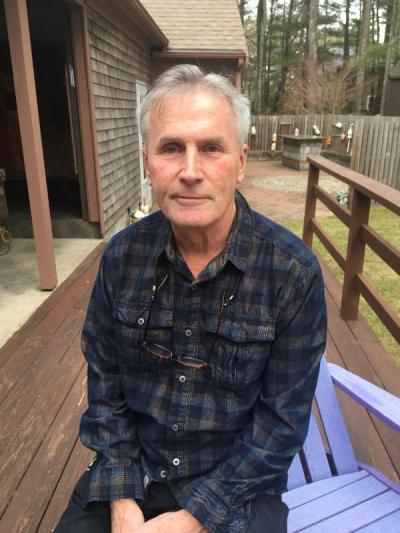Funding helps Wareham oyster growers supply seafood to people in need
When restaurants closed due to coronavirus restrictions, Wareham’s seven oyster growers found themselves — along with so many others — in a precarious position. Oyster sales decreased sharply, leaving growers with an abundance of oysters in a time of limited demand.
Wareham shellfish grower Dave Paling owns Crooked River Shellfish Farm. He said his farm, which is considered small by industry standards, would typically sell 1,000 to 2,000 oysters each week before the pandemic.
When the pandemic hit, sales fell. Paling said he lost roughly 75 to 80 percent of revenue in 2020, compared to 2019 numbers.
“We did sell oysters,” he said. “But it was a trickle instead of a flood.”
As oyster growers struggled with having too much product, Massachusetts food banks faced the opposite crisis: the number of people experiencing food insecurity was increasing significantly. That’s where the Woods Hole Sea Grant’s $85,000 in covid-19 rapid response funding came into play.
The funding supported a program — a combined effort between the Woods Hole Sea Grant and the Barnstable County government’s Cape Cod Cooperative Extension — designed to help oyster growers and those in need of food.
“Any of the oyster growers in this area had an invitation to participate,” Paling said. “You could bring a limited number [of oysters] in and sell them to a wholesaler at a certain price.”
Paling noted that the price was reduced, but said “it was better to sell oysters at a reduced price than not at all.” He said the program was mutually beneficial because he got to “move some product,” and the oysters that were sold to wholesalers were then shucked, processed and sent to food banks around the state.
“It was working on both ends; it was a win-win,” Paling said. “I was happy [...] and I’m sure the people eating the oysters were happy.”
Abigail Archer, a fisheries and aquaculture specialist working with the Woods Hole Sea Grant and the Cape Cod Cooperative Extension, confirmed that four Wareham growers sold oysters through the program.
Another important aspect of the program was that it allowed growers to sell “oversized” oysters. Paling explained that while oysters must be at least 3 inches to sell, at 4 inches they lose their desirability for much of the market.
“With this program, we were allowed to bring in oversized oysters because they were going to be processed,” Paling said. “So not only did we get to sell some oysters, but we got to sell some oysters that had grown too large — and why they grew too large is because we can’t move them.”
Although the program presented a great opportunity for oyster growers, Paling noted that it was still limited, as growers could only make a one-time sale of up to 1,000 oysters.
“But nonetheless, we were happy,” he said, before complimenting Josh Reitsma and others from the Woods Hole Sea Grant and the Cape Cod Cooperative Extension who came up with such an innovative and successful program.
Wareham growers Philip Chiaraluce of Edgewater Oysters and Mike and Dale Besse of Indian Cove Aquaculture also participated in the program.
Additional funding has been secured by the Mass Aquaculture Association to keep the oyster purchasing and donation program going, however, so growers should have another opportunity to sell more oysters in the future.













